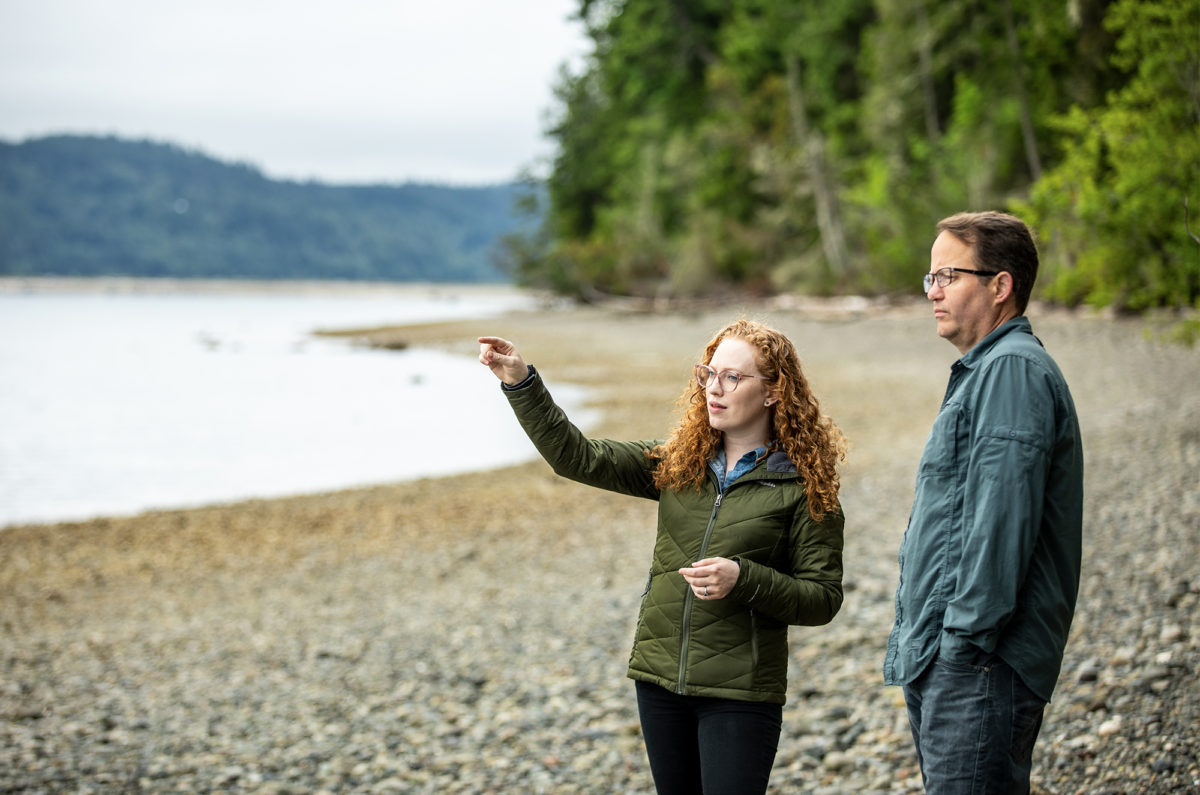EarthLab Advisory Council
The EarthLab Advisory Council is a body of volunteers from diverse professions and backgrounds that provides unique perspectives to help inform EarthLab strategy and programming.
Advisory Council members advise the Executive Director in efforts to build and shape the new organization, introduce EarthLab to potential partners and collaborators, and raise awareness and financial support for EarthLab.
EarthLab Advisory Council
Trish Millines Dziko
Technology Access Foundation
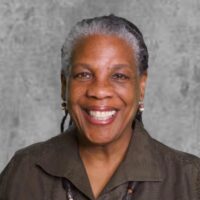 Trish Millines Dziko cofounded Technology Access Foundation (TAF) in 1996 after spending 17 years in the tech industry. Through Trish’s leadership, TAF transitioned from out of school programs to become a statewide leader in public education, operating TAF Academy (a 6th to 12th grade award-winning public school, co-managed with the Federal Way Public School District), partnering with public schools to transform them to promote the highest level of student learning, and increasing the number of teachers of color through the Martinez Fellowship.
Trish Millines Dziko cofounded Technology Access Foundation (TAF) in 1996 after spending 17 years in the tech industry. Through Trish’s leadership, TAF transitioned from out of school programs to become a statewide leader in public education, operating TAF Academy (a 6th to 12th grade award-winning public school, co-managed with the Federal Way Public School District), partnering with public schools to transform them to promote the highest level of student learning, and increasing the number of teachers of color through the Martinez Fellowship.
Trish is a committed, proactive leader serving on boards of organizations that focus on children and education.
Chip Giller
Agog
 Chip Giller has been a visionary in the climate space and media field for 30 years, leading creative storytelling teams and partnering with nonprofits, philanthropists, and other leaders to accelerate progress to a better, more just world. In 2024, Chip joined forces with Wendy Schmidt to launch Agog: The Immersive Media Institute, bringing their shared passion for innovation and social change to the forefront of the immersive media landscape. Agog helps people use emerging media like XR to imagine and build better futures. In 1999, Chip founded one of the first digital news organizations and first nonprofit newsrooms, Grist, to engage the next generation on climate change and other environmental issues. Grist reaches millions and has been recognized in many ways for its impact, including as a recipient of the National Magazine Award for General Excellence. In 2017, Chip launched Grist’s solutions lab to identify, celebrate, and connect a diverse array of climate solutions leaders, collectively known as the Grist 50; and to tell unexpected stories in creative new formats about justice and progress. Among other honors, Chip has received a Heinz Award and been named a TIME “Hero of the Environment.”
Chip Giller has been a visionary in the climate space and media field for 30 years, leading creative storytelling teams and partnering with nonprofits, philanthropists, and other leaders to accelerate progress to a better, more just world. In 2024, Chip joined forces with Wendy Schmidt to launch Agog: The Immersive Media Institute, bringing their shared passion for innovation and social change to the forefront of the immersive media landscape. Agog helps people use emerging media like XR to imagine and build better futures. In 1999, Chip founded one of the first digital news organizations and first nonprofit newsrooms, Grist, to engage the next generation on climate change and other environmental issues. Grist reaches millions and has been recognized in many ways for its impact, including as a recipient of the National Magazine Award for General Excellence. In 2017, Chip launched Grist’s solutions lab to identify, celebrate, and connect a diverse array of climate solutions leaders, collectively known as the Grist 50; and to tell unexpected stories in creative new formats about justice and progress. Among other honors, Chip has received a Heinz Award and been named a TIME “Hero of the Environment.”
Chloe Harford
 Chloe Harford is a senior strategy, product and business executive with almost 20 years of experience scaling high-growth companies across the globe. She has led companies through all stages of growth from pre-launch startup through IPO to over $2B revenue.
Chloe Harford is a senior strategy, product and business executive with almost 20 years of experience scaling high-growth companies across the globe. She has led companies through all stages of growth from pre-launch startup through IPO to over $2B revenue.
Most recently Chloe served as Vice President of Product at OfferUp, the largest mobile marketplace for local buyers and sellers in the US, responsible for product, artificial intelligence and revenue. Chloe previously served in multiple senior executive roles at Zillow Group (NASDAQ: Z, ZG), a portfolio of the world’s largest real estate brands. Chloe joined Zillow as founding team member and became one of
the company’s first executives. She was responsible for building and leading core teams including product management and business analytics, defining and managing key business areas including mortgage and rentals, and leading growth and acquisition strategy.
Earlier in her career, Chloe worked in strategic roles at eLong in China, and the Boston Consulting Group and Expedia in Europe. Chloe’s tech career is underpinned by a solid foundation of science and technology developed as a PhD volcanologist and founding member of the Montserrat Volcano Observatory, where she developed new technologies to monitor an active volcano and manage the risk to the nearby population.
Chloe holds an MA in Natural Sciences from Cambridge University, a PhD in Volcanology from Bristol University, and an MBA from INSEAD. Chloe serves on the board of JetClosing, and has served on the board of REI and The Mountaineers.
Kate Janeway, JD, MPA
Executive Coach
 Kate Janeway has been working on environmental issues for more than 50 years, starting with the oil spill that fouled 40 miles of beach in her hometown, Santa Barbara California, when she was 15 years old. Her work since that time has been defined by her quest for the most effective skill sets to address the existential challenges we face. Consequently, Kate has a law degree, a Master’s in Public Administration focused on Environmental Policy and Natural Resource Management and is a certified Executive Coach. The skills and insights from these combined disciplines inform her work with organizations and systems seeking change.
Kate Janeway has been working on environmental issues for more than 50 years, starting with the oil spill that fouled 40 miles of beach in her hometown, Santa Barbara California, when she was 15 years old. Her work since that time has been defined by her quest for the most effective skill sets to address the existential challenges we face. Consequently, Kate has a law degree, a Master’s in Public Administration focused on Environmental Policy and Natural Resource Management and is a certified Executive Coach. The skills and insights from these combined disciplines inform her work with organizations and systems seeking change.
The through-line in Kate’s career has been the thirty years of work with The Nature Conservancy where she began as Assistant Director of the Washington/Alaska Field Office. Since then, she has served as a volunteer on TNC state boards in Ohio, Alaska and, currently, Washington.
Kate also serves on the Advisory Board of the Stanford Woods Institute for the Environment which is now deeply engaged in launching the new Doerr School of Sustainability at Stanford University.
Kate holds a B.A. in American Studies and Humanities from Stanford University, a J.D. from Georgetown Law Center, and an M.P.A. in Environmental Policy and Natural Resource Management from the University of Washington. She is a certified Hudson Institute Coach.
Phil Rigdon
Superintendent of Natural Resources, Yakama Nation
 Phil Rigdon is an enrolled member of the Yakama Nation and grew up on the Yakama Reservation in southcentral Washington state. Phil has been the Superintendent of Yakama Nation’s Natural Resources Department since May 2005 and has worked for the Tribe since June 1989. He represents the Yakama Nation on the Yakima Basin Integrated Plan Executive Committee, Yakima River Basin Watershed Enhancement Project Workgroup & Conservation Advisory Group, the Washington State’s Columbia River Policy Advisory Group, Tapash Sustainable Forest Collaborative, and the Hanford Natural Resource Trustee Council. Phil also served as President of the Intertribal Timber Council for five years. Phil obtained a BS in Forest Management from the University of Washington and a Masters of Forestry from Yale School of Forestry and Environmental Studies.
Phil Rigdon is an enrolled member of the Yakama Nation and grew up on the Yakama Reservation in southcentral Washington state. Phil has been the Superintendent of Yakama Nation’s Natural Resources Department since May 2005 and has worked for the Tribe since June 1989. He represents the Yakama Nation on the Yakima Basin Integrated Plan Executive Committee, Yakima River Basin Watershed Enhancement Project Workgroup & Conservation Advisory Group, the Washington State’s Columbia River Policy Advisory Group, Tapash Sustainable Forest Collaborative, and the Hanford Natural Resource Trustee Council. Phil also served as President of the Intertribal Timber Council for five years. Phil obtained a BS in Forest Management from the University of Washington and a Masters of Forestry from Yale School of Forestry and Environmental Studies.
Chukundi Salisbury
City of Seattle
 A self-described “Parks Kid,” Chukundi grew up in the Central Area and participated in several programs at Miller Community Center and other organizations. He has a lifelong commitment to service as a volunteer, board member, employee, manager, small business owner, and participant.
A self-described “Parks Kid,” Chukundi grew up in the Central Area and participated in several programs at Miller Community Center and other organizations. He has a lifelong commitment to service as a volunteer, board member, employee, manager, small business owner, and participant.
Salisbury is a 25-year employee of the City of Seattle, where he works as a Manager for Parks and Recreation and serves as the founding director of the Youth Green Corps. He has served as the Trails Coordinator, Urban Food Systems Manager, Director of Camp Long, as well as a Recreation Center Coordinator at Garfield Community Center.
Outside of work, he is the founder of Service is a Lifestyle, a 501©3 Non-Profit that has launched several community initiatives such as 100 Black Parents, URBVOTE (the Urban Vote Initiative), and the “This House is Not For Sale Campaign”. In 2021 he launched the “Health is the Real Bag” campaign to focus on wellness after losing over 70lbs and reversing his Type II Diabetes.
As a community volunteer he has served in many roles and boards, including Real Change Newspaper, YMCA Camping Services, Mothers For Police Accountability, Southeast Youth and Family Services, The African American Advisory to the Seattle Police Department, and the Central District Community Preservation & Development Authority (CDCPDA). He currently serves as the President of Phi Beta Sigma Fraternity, Epsilon Epsilon Sigma Chapter in Seattle.
As an entrepreneur, he is the founder of SEASPOT Media Group, which is a marketing and publishing house. He is the Publisher of the Adventures of Lil Big Fella Comic Book and has owned small businesses.
Salisbury is also a nationally known Disc Jockey who has performed locally and internationally at venues large and small.
Jamie Stroble
The Nature Conservancy
 Jamie is a newly created changemaker role within the Washington State Chapter of The Nature Conservancy, charged with developing a new climate program and shift the way work is done to center racial equity, climate action, and community resilience. Previously, she worked the King County’s Climate Action Team as the lead on climate change-related community engagement and partnership efforts, climate justice and community resiliency, and the integration of equity and social justice into our regional climate action work. Her role built alliances with public, private, and civic sector partners to develop community-driven climate solutions, and shape decision-making in ways that advance equity. Prior to her transition into local government, Jamie worked for a non-profit in the Chinatown/International District, engaging and empowering Asian Pacific Islander (API) youth and elders around environmental justice and community development issues. She has also worked in leadership and curriculum development with youth & young professionals, student support services at the University of Washington, with northwest treaty tribes around air quality impacts on environmental health, and traditional foods access.
Jamie is a newly created changemaker role within the Washington State Chapter of The Nature Conservancy, charged with developing a new climate program and shift the way work is done to center racial equity, climate action, and community resilience. Previously, she worked the King County’s Climate Action Team as the lead on climate change-related community engagement and partnership efforts, climate justice and community resiliency, and the integration of equity and social justice into our regional climate action work. Her role built alliances with public, private, and civic sector partners to develop community-driven climate solutions, and shape decision-making in ways that advance equity. Prior to her transition into local government, Jamie worked for a non-profit in the Chinatown/International District, engaging and empowering Asian Pacific Islander (API) youth and elders around environmental justice and community development issues. She has also worked in leadership and curriculum development with youth & young professionals, student support services at the University of Washington, with northwest treaty tribes around air quality impacts on environmental health, and traditional foods access.
She has been active in environmental justice and equitable development, and brings a strong knowledge of environmental health, air quality, sustainability issues and social justice, and background in culturally-relevant community outreach and engagement, particularly with youth and limited English speaking populations. She serves on the boards of the non-profits Asian Pacific Islander Community Leadership Foundation (ACLF) and APICAT for Healthy Communities, on the Climate Justice Committee of Got Green, as a former Community Partner Steering Committee member of the City of Seattle’s Environment & Equity Initiative, and as co-chair of the Housing & Neighborhoods committee of the Seattle Planning Commission.
Originally from Hawai’i, Jamie is a 2010 University of Washington (and College of the Environment) graduate. At UW, she obtained double degrees in Environmental Studies and International Studies (with a focus on community development), and minored in Geography, Diversity Studies, and Environmental Science & Resource Management.
Diani Taylor
Taylor Shellfish Farms
 Diani Taylor is a 5th generation shellfish farmer from Washington State and works as General Counsel at Taylor Shellfish Farms, her family business. Diani grew up on the Puget Sound and spent her formative years, fishing, farming, and exploring the Northwest. She is passionate about water quality, sustainable food production, and conservation issues and is committed to working on the challenges facing our environment. In 2016, Diani worked for the White House Council on Environmental Quality as the National Ocean Council Law Clerk. After receiving her law degree, she worked for Plauche & Carr, an environmental and law use firm, before returning to work for her family. Diani received her BA in Environmental Studies from the University of Montana and her law degree from Seattle University.
Diani Taylor is a 5th generation shellfish farmer from Washington State and works as General Counsel at Taylor Shellfish Farms, her family business. Diani grew up on the Puget Sound and spent her formative years, fishing, farming, and exploring the Northwest. She is passionate about water quality, sustainable food production, and conservation issues and is committed to working on the challenges facing our environment. In 2016, Diani worked for the White House Council on Environmental Quality as the National Ocean Council Law Clerk. After receiving her law degree, she worked for Plauche & Carr, an environmental and law use firm, before returning to work for her family. Diani received her BA in Environmental Studies from the University of Montana and her law degree from Seattle University.
Bob Whitener
The Whitener Group
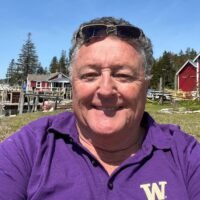 As owner and managing partner of The Whitener Group, Bob Whitener has over 40 years of experience working with tribal governments and enterprises within Indian County.
As owner and managing partner of The Whitener Group, Bob Whitener has over 40 years of experience working with tribal governments and enterprises within Indian County.
Bob has extensive experience in the areas of natural resources management, finance administration, human resources systems, tribal-state compact negotiations, policy development, and federal negotiations. Bob served as the Natural Resources Director for the Squaxin Island Tribe, The Director of Finance and Administration for the Northwest Indian Fisheries Commission, Executive Director of the Squaxin Island Tribe and CEO of Island Enterprises Incorporated. IEI is the economic development corporation for the Squaxin Island Tribe. Bob also served for many years on the Pacific Salmon Treaty, rotating in and out of the Chair of the Southern Panel.
After retiring from tribal service, Bob and his brother Ron, later joined by his Daughter Jennifer Whitener Ulrich, formed The Whitener Group LLC. TWG is dedicated to working in Indian Country and over the past ten years has worked with around 100 different tribes and Native Villages. TWG also works with many, usually non-profits, who want to work with or have good relations with tribes. These include the Pew Charitable Trust, The Nature Conservancy, Mountains to the Sound Greenway, Seattle YMCA, and Forterra.
TWG also works on emerging issues from climate change to carbon removal for these NGOs and/or as a supportive contributor to on-going processes.
Sally Jewell
Chair, EarthLab Advisory Council
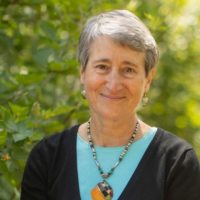 As a business executive and public servant serving as U.S. Secretary of the Interior under President Obama, Sally Jewell focused her career on supporting a robust economy coupled with long-term sustainability of our natural world and its diverse people.
As a business executive and public servant serving as U.S. Secretary of the Interior under President Obama, Sally Jewell focused her career on supporting a robust economy coupled with long-term sustainability of our natural world and its diverse people.
During her tenure as Interior Secretary, Jewell was recognized for taking the long-view, using a science-based, landscape-level, collaborative approach to natural resources management. She and her capable team were deeply engaged in rebuilding a trusting, nation-to-nation relationship with indigenous communities in the U.S. They championed the importance of science and sharing data to better understand our Earth’s systems; supported development of commercial-scale renewable energy on public lands and waters; encouraged investments for more sustainable use of water in the West; and worked with Congress, President Obama and his team on long-term conservation of our nation’s most vulnerable and irreplaceable natural, cultural and historic treasures.
Throughout her career, Jewell has been committed to connecting people to nature, particularly youth. At Interior, she and her team championed efforts to create a continuum of engagement that encouraged tens of millions of young people to play, learn, serve and work on public lands.
Prior to serving on President Obama’s cabinet, Jewell was President and CEO of REI, a $2.6 billion retailer dedicated to facilitating outdoor adventures. She previously served 19 years in commercial banking across a wide-range of industries, and began her career as an engineer in the energy sector. Throughout her adult life, she has been active in governance and board leadership for corporations and non-profit organizations, including serving as a Regent of the University of Washington where she was a Distinguished Fellow in the College of the Environment.
Phil Levin
Interim Executive Director, EarthLab at the University of Washington
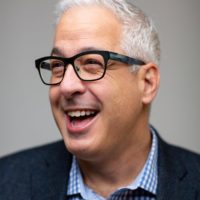 Phil Levin serves as the Interim Executive Director of EarthLab. In this role, Phil is responsible for working strategically within and beyond the University to promote new learning and action to address environmental challenges by building relationships between the University and public, private and nonprofit sectors. These relationships will enable EarthLab to bring the exceptional research and science at the University to bear on a range of environmental matters.
Phil Levin serves as the Interim Executive Director of EarthLab. In this role, Phil is responsible for working strategically within and beyond the University to promote new learning and action to address environmental challenges by building relationships between the University and public, private and nonprofit sectors. These relationships will enable EarthLab to bring the exceptional research and science at the University to bear on a range of environmental matters.
In addition to this role, Phil is a conservation scientist focused on bridging the gaps between theory and practice and between social and natural sciences. His current work centers on developing interdisciplinary tools to inform conservation of marine, aquatic and terrestrial ecosystems and the communities that depend on them.
From 2023-2025, Phil served as Director of the first-ever National Nature Assessment in the White House Office of Science & Technology Policy, work that continues as part of the United by Nature Initiative. Prior to joining the University of Washington, he was a Senior Scientist at NOAA Fisheries’ Northwest Fisheries Science Center in Seattle, where he served as the scientific lead of NOAA’s Integrated Ecosystem Assessment efforts in the California Current Large Marine Ecosystem and Puget Sound. In this role, Phil led the development of new analytical tools for characterizing ecosystem health and forecasting the cumulative effects of coastal zone management and climate change on marine ecosystems. He has received the Department of Commerce Silver Award and NOAA’s Bronze Medal for his work on marine ecosystems, and the Seattle Aquarium’s Conservation Research Award for his work in Puget Sound.
Phil has published over 200 scientific papers in peer-reviewed journals, book chapters and technical reports, and edited the book “Conservation of the Anthropocene Ocean: interdisciplinary approaches for nature and people.” His work has been featured in major news outlets including NPR, PBS, The New York Times, BBC, MSNBC, and The Economist.
Phil served as President of the Western Society of Naturalists and has served on numerous editorial boards and scientific advisory panels. He received his Ph.D. in zoology from the University of New Hampshire in 1993 and was a postdoctoral fellow at the University of North Carolina.
In recent years, Phil has been particularly interested in the social-ecological-systems of temperate rain forests from Washington to Southeast Alaska and urban stormwater systems through projects including the Ocean Tipping Points Project and The Ocean Modeling Forum.
Joel Thornton
Interim Dean of the University of Washington College of the Environment
 Joel Thornton is the interim dean for the UW College of the Environment and an atmospheric scientist who studies the impacts of human activities on air quality and climate through changes to the atmosphere’s composition and chemistry. His focus is on the processes which regulate the formation and removal of short-lived greenhouse gases such as methane and ozone, and the formation and growth of airborne particulate matter. These atmospheric components, strongly modulated by both human activities and natural processes, have important effects of human and ecosystem health, and impact climate through the greenhouse effect and changes to cloud properties. He has received a NSF CAREER Award and a NASA New Investigator Award, given to young researchers who show exceptional promise. He also received the Houghton Award from the American Meteorological Society and the ASCENT Award from the American Geophysical Union for his research contributions to the field of atmospheric science.
Joel Thornton is the interim dean for the UW College of the Environment and an atmospheric scientist who studies the impacts of human activities on air quality and climate through changes to the atmosphere’s composition and chemistry. His focus is on the processes which regulate the formation and removal of short-lived greenhouse gases such as methane and ozone, and the formation and growth of airborne particulate matter. These atmospheric components, strongly modulated by both human activities and natural processes, have important effects of human and ecosystem health, and impact climate through the greenhouse effect and changes to cloud properties. He has received a NSF CAREER Award and a NASA New Investigator Award, given to young researchers who show exceptional promise. He also received the Houghton Award from the American Meteorological Society and the ASCENT Award from the American Geophysical Union for his research contributions to the field of atmospheric science.
 Troy founded Ocean5, an innovative social gathering destination, developed with the core purpose of creating unforgettable shared experiences for their guests and team, and driving awareness and inspiring action to improve the health of our oceans and seas in March 2016. Prior, Troy spent 24 years with Starbucks Corporation. He served in the following roles at Starbucks: Chief Operating Officer, Group President of Global Business Services, Chief Administrative Officer Chief Financial Officer, Chief Accounting Officer, Senior Vice President of Global Finance, Senior Vice President of Finance and Global Business Operations and Senior Vice President of International Finance and Business Development. He was one of the original members of the Starbucks International team and was responsible for financial leadership as well as strategic planning and business development for the fast-growing international business. He served in a number of other senior positions with Starbucks prior to 2004. Before Starbucks, Troy served domestic and international finance, accounting and auditing positions with NCR Corporation and Egghead Software. He has been a Director of Topgolf International, Inc. since March 29, 2017. He has been an Independent Director of Harley-Davidson, Inc. since February 23, 2017. He has been a Director of Levi Strauss & Co. since April 18, 2012.
Troy founded Ocean5, an innovative social gathering destination, developed with the core purpose of creating unforgettable shared experiences for their guests and team, and driving awareness and inspiring action to improve the health of our oceans and seas in March 2016. Prior, Troy spent 24 years with Starbucks Corporation. He served in the following roles at Starbucks: Chief Operating Officer, Group President of Global Business Services, Chief Administrative Officer Chief Financial Officer, Chief Accounting Officer, Senior Vice President of Global Finance, Senior Vice President of Finance and Global Business Operations and Senior Vice President of International Finance and Business Development. He was one of the original members of the Starbucks International team and was responsible for financial leadership as well as strategic planning and business development for the fast-growing international business. He served in a number of other senior positions with Starbucks prior to 2004. Before Starbucks, Troy served domestic and international finance, accounting and auditing positions with NCR Corporation and Egghead Software. He has been a Director of Topgolf International, Inc. since March 29, 2017. He has been an Independent Director of Harley-Davidson, Inc. since February 23, 2017. He has been a Director of Levi Strauss & Co. since April 18, 2012. Eric Artz is the CEO for REI. When he’s not at the co-op he can most often be found with his family pounding the trails of the Cascade Mountain range. Eric joined REI in 2012 as Chief Financial Officer. Prior to REI, he worked as CFO at Urban Outfitters, and at VF Corporation in a variety of finance and operational roles. He holds a BS in Accounting from Albright College (1989). He is currently serving as Vice Chairman of the Board for the Outdoor Industry Association, and is a member of the Board of Directors for the Mountains to Sound Greenway Trust.
Eric Artz is the CEO for REI. When he’s not at the co-op he can most often be found with his family pounding the trails of the Cascade Mountain range. Eric joined REI in 2012 as Chief Financial Officer. Prior to REI, he worked as CFO at Urban Outfitters, and at VF Corporation in a variety of finance and operational roles. He holds a BS in Accounting from Albright College (1989). He is currently serving as Vice Chairman of the Board for the Outdoor Industry Association, and is a member of the Board of Directors for the Mountains to Sound Greenway Trust.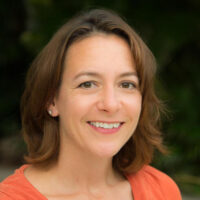
 Gretchen most recently served as the director for Pacific Northwest National Laboratory Center for Global Security (PNNL). Her work with PNNL focused on identifying emerging issues that may have national security implications. Gretchen has convened experts to identify and investigate emerging threats that are not in the mainstream of current debate but believed to have grave consequence. Her role is to help translate technical detail into digestible information that decision makers can use in setting policy. Examples include understanding the threats and challenges found in the intersection of climate change and national security and how integrated climate models can be better tailored to help inform decisions on infrastructure resilience.
Gretchen most recently served as the director for Pacific Northwest National Laboratory Center for Global Security (PNNL). Her work with PNNL focused on identifying emerging issues that may have national security implications. Gretchen has convened experts to identify and investigate emerging threats that are not in the mainstream of current debate but believed to have grave consequence. Her role is to help translate technical detail into digestible information that decision makers can use in setting policy. Examples include understanding the threats and challenges found in the intersection of climate change and national security and how integrated climate models can be better tailored to help inform decisions on infrastructure resilience.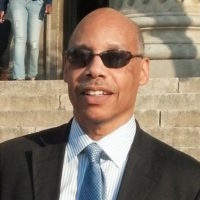 Dr. Ken Jennings is an adjunct professor of Environmental Management at the University of Maryland University Center with over 30 years of experience in government (the U.S. EPA Headquarters); industry (Amoco, Shell and Microsoft Corporations) and consulting. Ken is managing director of K2J Environmental LLC, which is a consulting firm he founded in 2010, specializing in environmental management, sustainability and energy, with a focus on the US, Africa and the Caribbean. His areas of expertise include compliance, sustainability, energy and climate change. He has consulted many governments on environmental matters including Trinidad & Tobago, Barbados, Guyana and Haiti. He wrote a policy brief for the Global Environment Facility (UNEP) on Sustainable Urbanization and accompanied the GEF CEO and delegation to the EcoCity World Summit in Nantes 2013.
Dr. Ken Jennings is an adjunct professor of Environmental Management at the University of Maryland University Center with over 30 years of experience in government (the U.S. EPA Headquarters); industry (Amoco, Shell and Microsoft Corporations) and consulting. Ken is managing director of K2J Environmental LLC, which is a consulting firm he founded in 2010, specializing in environmental management, sustainability and energy, with a focus on the US, Africa and the Caribbean. His areas of expertise include compliance, sustainability, energy and climate change. He has consulted many governments on environmental matters including Trinidad & Tobago, Barbados, Guyana and Haiti. He wrote a policy brief for the Global Environment Facility (UNEP) on Sustainable Urbanization and accompanied the GEF CEO and delegation to the EcoCity World Summit in Nantes 2013.
 Christopher Stolte is a co-founder and board member of Tableau, a Seattle-based analytics and visualization company, and he served as its original Chief Development Officer from inception until August 2016. It was his work as a Ph.D. candidate in the Stanford University Computer Science department that formed the basis of the patented technology behind Tableau. His research at Stanford and subsequent work at Tableau have been focused on developing easy to use tools that empower everyone to analyze and understand data. Prior to founding Tableau, he was the Chief Technology Officer and co-founder of BeeLine Systems, a digital mapping startup. He holds a Ph.D. in Computer Science from Stanford University and a B.S. from Simon Fraser University. Chris and his wife Heidi have founded the Stolte Family Foundation. The foundation gives grants to a variety of non-profits working on environmental and educational issues in the Pacific Northwest.
Christopher Stolte is a co-founder and board member of Tableau, a Seattle-based analytics and visualization company, and he served as its original Chief Development Officer from inception until August 2016. It was his work as a Ph.D. candidate in the Stanford University Computer Science department that formed the basis of the patented technology behind Tableau. His research at Stanford and subsequent work at Tableau have been focused on developing easy to use tools that empower everyone to analyze and understand data. Prior to founding Tableau, he was the Chief Technology Officer and co-founder of BeeLine Systems, a digital mapping startup. He holds a Ph.D. in Computer Science from Stanford University and a B.S. from Simon Fraser University. Chris and his wife Heidi have founded the Stolte Family Foundation. The foundation gives grants to a variety of non-profits working on environmental and educational issues in the Pacific Northwest.